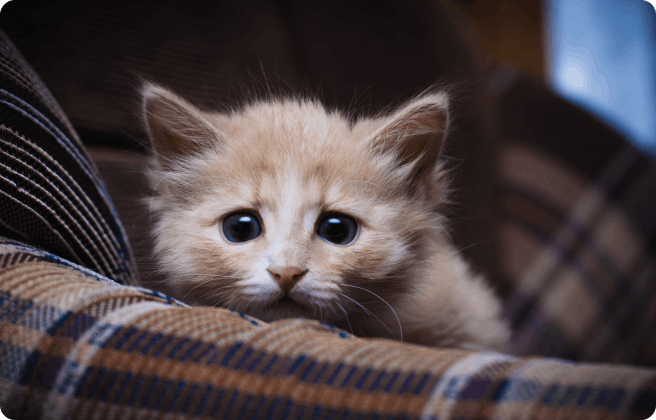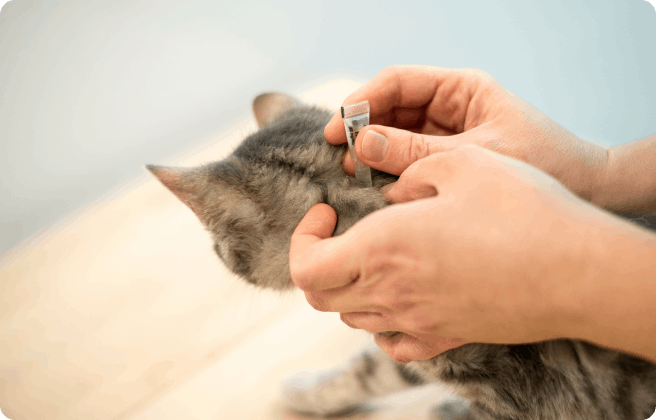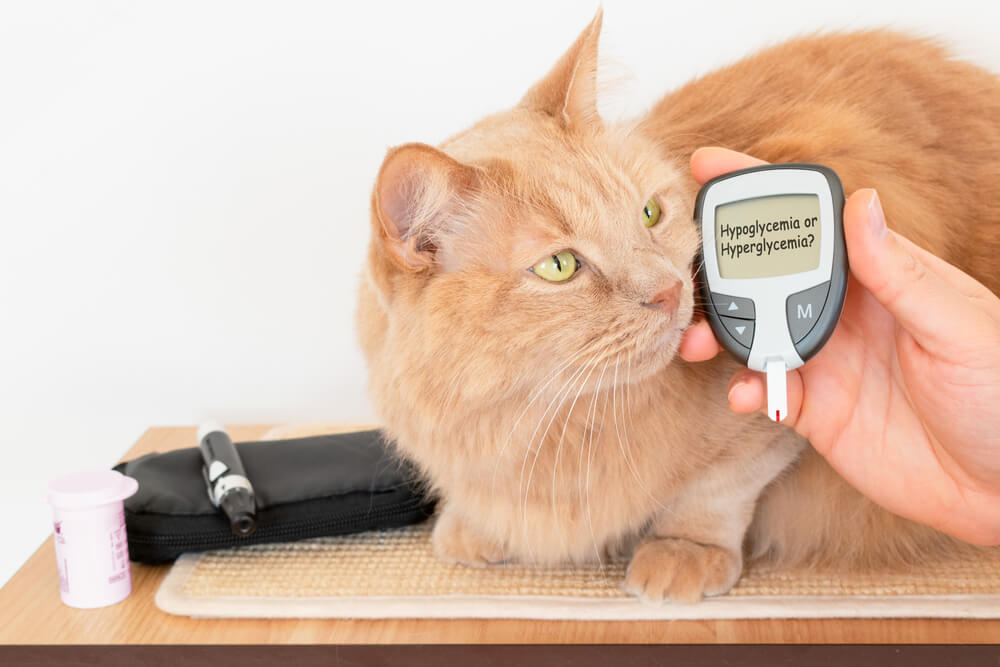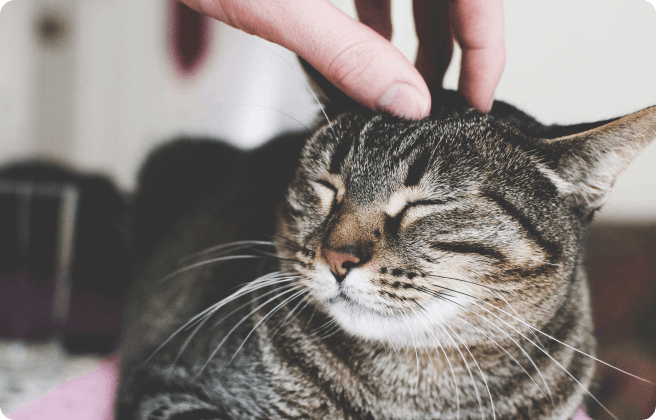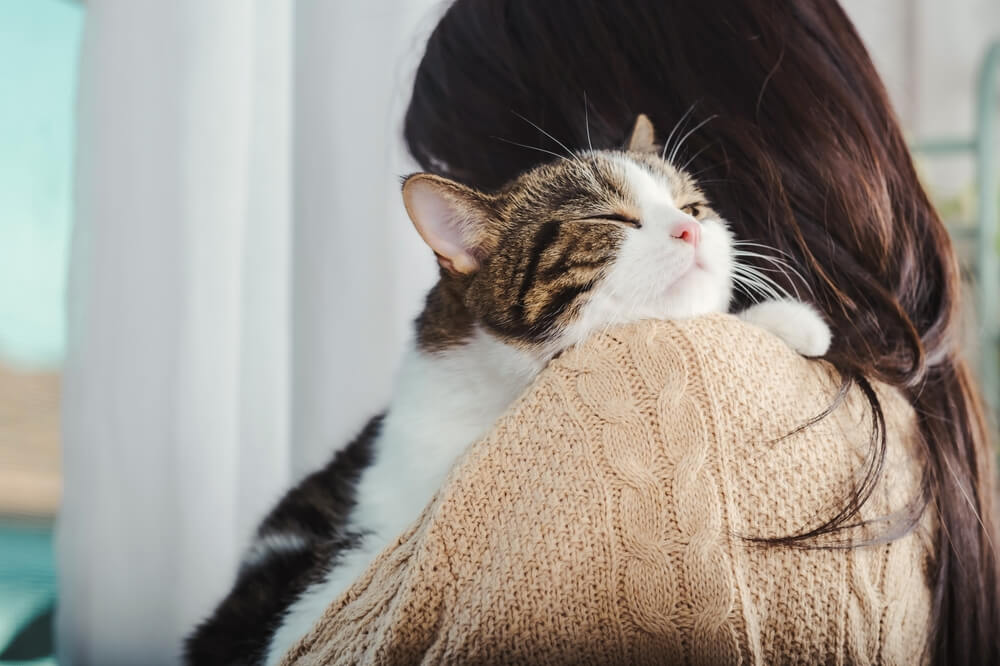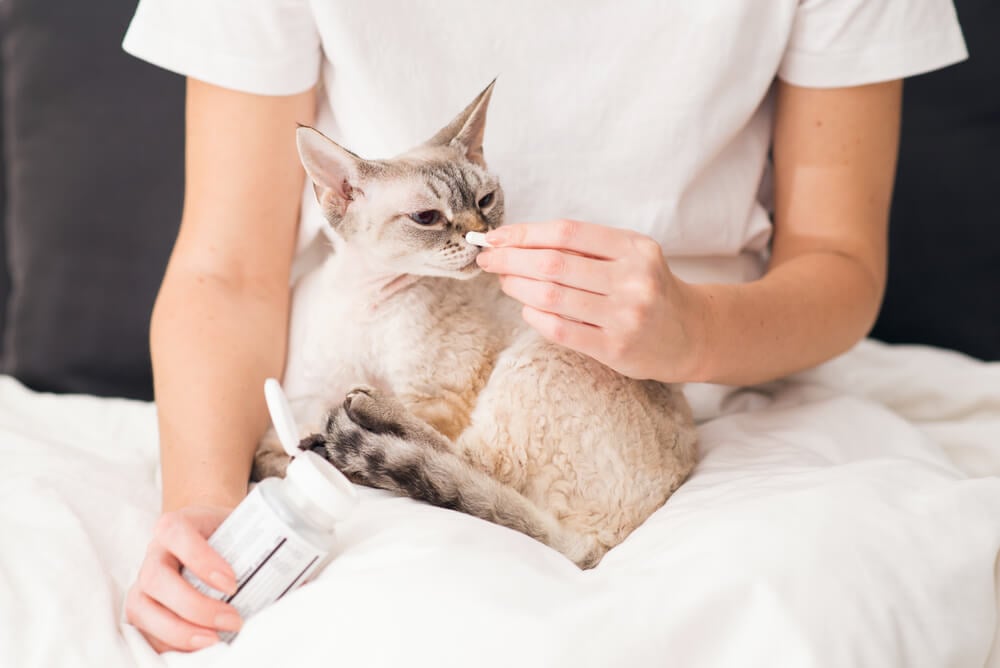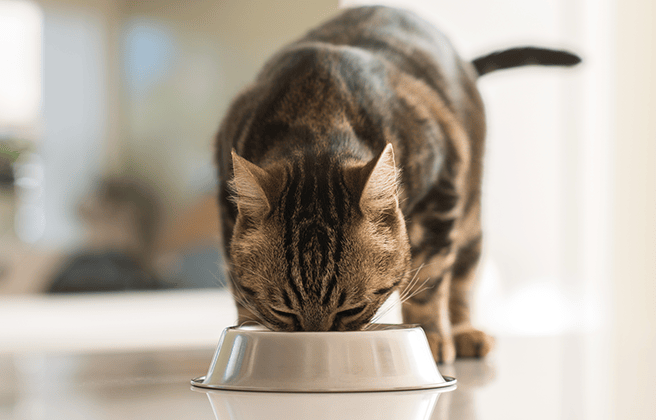
Many human foods can be harmful – even fatal – to cats. To ensure your cat’s health and well-being, it’s important to feed them a balanced and appropriate feline diet that meets their nutritional needs.
If you want to offer your cat treats or a variety of foods, choose cat-specific treats and consult your veterinarian to ensure their safety and suitability for your cat’s diet. It’s generally best to avoid feeding your cat human food to prevent potential health risks.
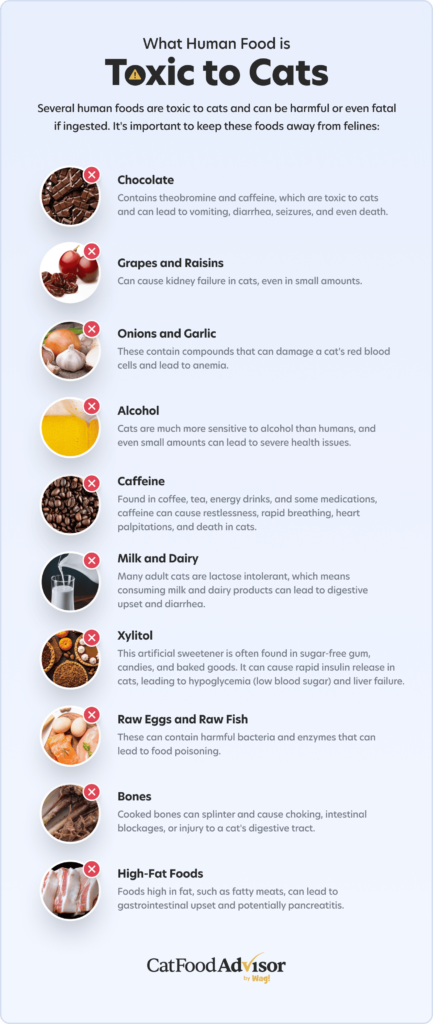
Here are the most common human foods cat parents should avoid feeding their cats and the reasons why.
Why is chocolate harmful to cats?:
Chocolate is harmful to cats because it contains substances called theobromine and caffeine, both of which are part of the methylxanthine family of chemicals.
These compounds are stimulants that affect the central nervous system and cardiovascular system. While humans can metabolize theobromine and caffeine relatively easily, cats process these substances much more slowly, making them more susceptible to their toxic effects.
Theobromine and caffeine can cause a range of health problems in cats, including:
Gastrointestinal Upset: Consumption of chocolate can lead to vomiting, diarrhea, and abdominal discomfort in cats.
Cardiac Issues: Theobromine and caffeine can affect a cat’s heart rate and rhythm, potentially leading to rapid heart rate, arrhythmias (irregular heartbeats), and even heart failure.
Central Nervous System Effects: These compounds can overstimulate a cat’s nervous system, leading to restlessness, tremors, seizures, and in severe cases, coma.
Hyperactivity: Cats may exhibit increased activity, restlessness, and agitation after ingesting chocolate.
The severity of chocolate toxicity in cats depends on factors such as the type of chocolate consumed (dark chocolate and cocoa powder contain higher levels of theobromine), the amount ingested, and the cat’s size and individual sensitivity.
Why are grapes and raisins harmful to cats?:
Grapes and raisins are harmful to cats because they can cause acute kidney failure. However, the exact mechanism behind this toxicity is not fully understood, and not all cats seem to be affected in the same way.
Some potential reasons for the toxicity of grapes and raisins in cats include:
Unknown Toxin: The specific toxic substance in grapes and raisins that affects cats is not yet identified. It’s believed that some cats may have a genetic predisposition that makes them more susceptible to the toxic effects.
Kidney Damage: Grapes and raisins can cause damage to a cat’s kidneys, leading to acute kidney failure. Kidney failure is a serious condition that can have severe and often irreversible consequences for a cat’s health.
Chemical Compounds: Grapes and raisins may contain compounds that cats cannot metabolize or eliminate effectively, leading to the buildup of toxins in the body.
Individual Sensitivity: Just as with other toxic foods, individual cats may have varying levels of sensitivity to grapes and raisins. Some cats may be able to consume small amounts without adverse effects, while others may experience toxicity even from a small ingestion.
Why are onions and garlic harmful to cats?:
Onions and garlic are harmful to cats because they contain compounds that can cause damage to a cat’s red blood cells and lead to a condition called hemolytic anemia. Hemolytic anemia occurs when the red blood cells are destroyed faster than the body can produce them, leading to a decreased oxygen-carrying capacity of the blood.
Both onions and garlic contain substances called thiosulfates, which are responsible for the toxic effects in cats. Thiosulfates can oxidize and damage the hemoglobin molecules in red blood cells, causing them to rupture and leading to anemia. Additionally, these substances can interfere with the normal function of red blood cells, which can further exacerbate the condition.
Cats are particularly sensitive to onion and garlic toxicity because their metabolism breaks down these substances differently from humans and some other animals. Even a small amount of onion or garlic can lead to significant health issues in cats.
Symptoms of onion and garlic toxicity in cats may include:
- Weakness
- Lethargy
- Pale or Jaundiced (Yellow) Gums
- Increased Heart Rate
- Labored Breathing
- Vomiting
- Diarrhea
- Loss of Appetite
Why is alcohol harmful to cats?:
Alcohol is harmful to cats because their bodies are not equipped to metabolize it in the same way humans can. Ethanol, the type of alcohol found in alcoholic beverages, can have toxic effects on a cat’s body due to their smaller size, different metabolism, and unique physiological characteristics. Here’s why alcohol is dangerous for cats:
Metabolism Differences: Cats lack certain enzymes, particularly alcohol dehydrogenase, which are necessary to break down and metabolize alcohol. As a result, their bodies cannot efficiently process alcohol, leading to its accumulation in the bloodstream.
Central Nervous System Depression: Alcohol is a depressant that affects the central nervous system. In cats, it can lead to symptoms such as disorientation, stumbling, lethargy, and even loss of consciousness.
Hypoglycemia: Alcohol consumption can cause a drop in blood sugar levels (hypoglycemia), which can lead to seizures and other neurological issues in cats.
Respiratory Distress: High doses of alcohol can suppress the respiratory system, leading to difficulty breathing, slow or irregular breathing, and potentially respiratory failure.
Liver and Kidney Damage: Alcohol can strain a cat’s liver and kidneys, organs that play a crucial role in filtering toxins from the body. Prolonged exposure to alcohol can lead to organ damage.
Gastrointestinal Upset: Alcohol can irritate a cat’s stomach and intestines, leading to vomiting and diarrhea.
Dehydration: Alcohol can contribute to dehydration in cats, which can have serious health consequences.
Why is caffeine harmful to cats?:
Caffeine is harmful to cats because they are much more sensitive to its effects compared to humans. Caffeine is a stimulant that affects the central nervous system and cardiovascular system, and cats lack the necessary enzymes to metabolize caffeine efficiently. This can lead to a range of serious health problems.
Here’s why caffeine is dangerous for cats:
Stimulant Effect: Caffeine stimulates the central nervous system, which can lead to restlessness, agitation, tremors, and seizures in cats.
Increased Heart Rate: Caffeine can cause an elevated heart rate (tachycardia) and irregular heart rhythms (arrhythmias) in cats. This can be particularly dangerous, especially in cats with pre-existing heart conditions.
Vomiting and Diarrhea: Ingesting caffeine can irritate a cat’s gastrointestinal tract, leading to vomiting, diarrhea, and abdominal discomfort.
Hyperactivity: Cats exposed to caffeine may become overly active and show signs of hyperactivity.
Excessive Thirst and Urination: Caffeine can lead to increased water consumption and frequent urination, which can contribute to dehydration.
High Blood Pressure: The stimulant effects of caffeine can lead to an increase in blood pressure, which can have negative consequences for a cat’s cardiovascular health.
Nervous System Effects: Caffeine can affect a cat’s nervous system, potentially causing restlessness, muscle tremors, and even seizures.
Why is milk and dairy harmful to cats?:
Milk and dairy products can be harmful to many adult cats because a significant portion of them are lactose intolerant.
Lactose is a sugar found in milk, and cats, like some other mammals, produce an enzyme called lactase that helps break down lactose in their digestive system. However, many cats begin to produce less lactase as they mature, which can lead to lactose intolerance.
Here’s why milk and dairy can be harmful to lactose-intolerant cats:
Digestive Upset: Lactose-intolerant cats lack sufficient levels of lactase to properly digest lactose. When these cats consume milk or dairy products, the undigested lactose can ferment in the gut, leading to symptoms such as diarrhea, gas, bloating, and abdominal discomfort.
Gastrointestinal Distress: The fermentation of lactose can create an imbalance in the gut flora, leading to gastrointestinal distress and potentially more severe issues.
Dehydration: Diarrhea caused by lactose intolerance can lead to dehydration, which can have serious health consequences for cats.
Kittens, when they are nursing, have a higher level of lactase and can tolerate their mother’s milk. However, as they grow and are weaned, their production of lactase decreases, making them more prone to lactose intolerance as adults.
It’s important to note that not all cats are lactose intolerant, and some may tolerate small amounts of dairy without any adverse effects. However, it’s generally safer to avoid feeding milk and dairy products to adult cats altogether, especially if you are uncertain about your cat’s lactose tolerance.
If you want to offer your cat a dairy treat, you can look for specially formulated lactose-free cat milk or dairy products that are safe for cats to consume.
Why is Xylitol harmful to cats?:
Xylitol is a sugar substitute commonly used in sugar-free products, such as gum, candies, baked goods, and some medications.
While xylitol is safe for humans to consume, it is highly toxic to cats and can have serious and potentially fatal effects on their health. Here’s why xylitol is harmful to cats:
Insulin Release: Xylitol can lead to a rapid release of insulin in cats. Insulin is a hormone that helps regulate blood sugar levels. In cats, the excessive release of insulin can result in hypoglycemia (low blood sugar), which can lead to weakness, disorientation, seizures, and even coma.
Liver Damage: Xylitol can cause acute liver failure in cats. This is a particularly serious consequence of xylitol ingestion and can be life-threatening. The exact mechanism behind liver damage is not fully understood, but it appears to involve disruption of liver cell function and depletion of cellular energy.
Difficulty Metabolizing Xylitol: Cats lack the necessary enzymes to efficiently metabolize xylitol, which means even a small amount can lead to toxic effects.
The toxic dose of xylitol for cats is relatively low, making them more susceptible to its harmful effects compared to some other animals. As little as a few pieces of xylitol-containing gum or candy can result in severe toxicity.
Symptoms of xylitol poisoning in cats may include:
- Vomiting
- Loss of coordination
- Seizures
- Weakness
- Disorientation
- Hypoglycemia (low blood sugar) symptoms, such as lethargy and collapse
Why are raw eggs and raw fish harmful to cats?:
Raw egg and fish can potentially be harmful to cats due to various reasons:
Raw eggs carry a risk of containing the bacteria Salmonella or E. coli, which can cause food poisoning in cats. These bacteria can lead to gastrointestinal upset, vomiting, diarrhea, and even more serious health issues. Additionally, raw egg whites contain a protein called avidin, which can interfere with biotin absorption and lead to a deficiency of this essential B-vitamin in cats.
Raw fish, particularly certain types of fish like tuna, can contain an enzyme called thiaminase that breaks down thiamine (Vitamin B1). Thiamine deficiency can lead to neurological problems in cats, including muscle tremors, seizures, and even coma. Moreover, consuming raw fish increases the risk of exposure to parasites like tapeworms and other potential pathogens.
It’s important to note that while some cats might be able to tolerate small amounts of raw egg or fish without immediate adverse effects, these risks should not be underestimated. Additionally, feeding a diet primarily composed of raw eggs or fish can lead to nutritional imbalances and deficiencies over time.
Why are bones harmful to cats?:
Cooked bones, especially those from poultry, can be harmful to cats and other pets due to the risk of splintering and causing a variety of health issues. Here’s why cooked bones are dangerous for cats:
Splintering: When bones are cooked, they become brittle and can easily splinter into sharp shards. If a cat ingests these sharp fragments, they can cause serious internal injuries. The splinters can puncture or lacerate the cat’s mouth, throat, esophagus, stomach, or intestines.
Choking Hazard: Cooked bones can also pose a choking hazard. If a cat tries to swallow a bone or a bone fragment that is too large, it can become lodged in the throat, causing difficulty breathing or even suffocation.
Gastrointestinal Obstruction: Ingested bone fragments can lead to gastrointestinal obstructions, preventing the normal movement of food through the digestive tract. This can cause severe pain, vomiting, and potentially require surgical intervention to remove the blockage.
Pancreatitis: Consuming fatty cooked bones, such as those from a roasted chicken, can increase the risk of pancreatitis, a painful inflammation of the pancreas.
Given these risks, it’s important to never feed your cat cooked bones, especially bones from cooked poultry, as they are more prone to splintering.
It’s also recommended to avoid giving your cat any bones, cooked or raw, unless they are specifically designed and sold as safe chews for pets. Instead of bones, provide your cat with appropriate commercial cat food that meets their nutritional needs.
Why is high-fat foods harmful to cats?:
High-fat foods can be harmful to cats for several reasons, primarily due to the unique dietary requirements and sensitivities of felines.
Cats have evolved as obligate carnivores, which means their bodies are adapted to primarily consume animal-based protein and have specific nutritional needs.
Here’s why high-fat foods can be problematic for cats:
Pancreatitis: Cats are more susceptible to pancreatitis, which is inflammation of the pancreas. High-fat diets, especially those containing excessive amounts of saturated or unhealthy fats, can trigger or exacerbate pancreatitis in cats. Pancreatitis can cause abdominal pain, vomiting, diarrhea, and potentially more severe health complications.
Obesity: Cats have a natural tendency to store excess energy as fat. Feeding high-fat foods can contribute to weight gain and obesity, which can lead to a range of health problems, including diabetes, joint issues, and heart disease.
Nutritional Imbalance: Cats require specific nutrients, such as amino acids like taurine and certain vitamins, to maintain their health. A diet high in fat may not provide the appropriate balance of these essential nutrients, leading to potential deficiencies and health issues.
Gastrointestinal Upset: Sudden changes in diet or the consumption of high-fat foods can cause gastrointestinal upset in cats, leading to vomiting, diarrhea, and discomfort.
Liver Issues: Diets excessively high in fat can strain a cat’s liver, potentially leading to liver disease over time.
Always make sure to feed your cat a balanced and appropriate feline diet. If you suspect your cat has ingested any toxic substance, contact your veterinarian or an emergency animal poison control hotline immediately.
For help in choosing the best food for your cat, see our Best Cat Food pages. And to find out more information about how we rate the food, visit our FAQ page.
We uphold the highest editorial standards when creating the authoritative content pet parents rely on and trust.
Every piece of clinical content on the Cat Food Advisor is reviewed by our certified Veterinary Advisory Board, which consists of licensed veterinarians and medically certified specialists.
Our reviews are completely independent; we are not paid by any pet food company to promote their products favorably. We do not accept money, gifts, samples or other incentives in exchange for special consideration. For more information see our Disclaimer & Disclosure page.




